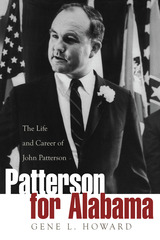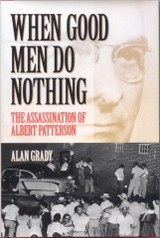

A provocative telling of "The Phenix City Story."
On June 18, 1954, former state senator Albert Patterson, the Democratic Party's nominee for state attorney general, was shot to death as he left his law office in Phenix City, Alabama, infamous for its prostitution, gambling, bootlegging, and political corruption. Patterson had made cleanup of Phenix City his primary campaign promise. With millions of dollars in illegal income and hundreds of political and professional careers at stake, the question surrounding Patterson's murder was not why the trigger was pulled, but who pulled it.
When Good Men Do Nothing is the definitive study of the Albert Patterson murder case. Alan Grady has mined the state's original murder case files; the papers of John Patterson, Albert's son; records from the Office of Alabama Attorney General (who directed the murder investigation); the case files of the Alabama Department of Toxicology and Criminal Investigation; National Guard reports; and more than 30 interviews with eyewitnesses and interested parties.
Grady takes a complex story of multiple dimensions—a large cast of judicial, criminal, and political players; a web of alliances and allegiances; and a knotted sequence of investigative revelations and dead ends—and transforms it into a readable, incisive analysis of the powers and loyalties that governed, and corrupted to the core, the body politic of the state. Readers will be enthralled and educated by this authoritative account of the most compelling crime drama in Alabama during the 20th century.
READERS
Browse our collection.
PUBLISHERS
See BiblioVault's publisher services.
STUDENT SERVICES
Files for college accessibility offices.
UChicago Accessibility Resources
home | accessibility | search | about | contact us
BiblioVault ® 2001 - 2024
The University of Chicago Press









